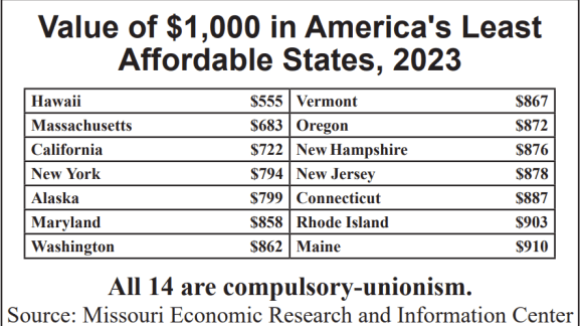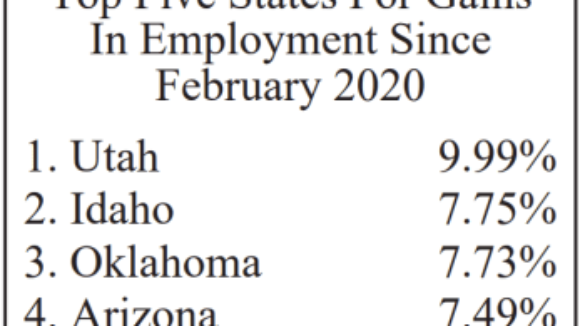Tyranny Triumphs in the Great Lakes State
Ignoring ample evidence of forced unionism’s unfairness and its damaging impact on jobs and incomes, Big Labor Michigan Gov. Gretchen Whitmer signed Right to Work destruction in 2023.
Kentucky’s new governor, Steve Beshear, talks a good game, but don’t expect columnist Jim Waters of the Georgetown News-Graphic to shake his head up and down like a “dashboard bobblehead doll.” Waters wants to know what happens to “good ideas for Kentucky,” like a Right to Work bill, when it clashes against Big Labor special interests with powerful agendas.
Will the governor consider long-term effects and all people or be content to grab short-term political gains? If he chooses the latter, Beshear can join a list of marginal leaders that dwarfs the state’s roll call of courageous governors.
Beshear’s fellow Democrats previously rejected the idea of a “right-to-work” policy, which would prevent employees from being forced to join labor unions or pay dues, whether they came with sufficient benefits or not.
Yet “right-to-work” is one of 16 critical economic variables for states in a new American Legislative Exchange Council report co-authored by highly respected economists Arthur Laffer and Stephen Moore. Without a right-to-work law, Kentucky ranks No. 46 among states – and dead last in the Southeast – in economic competitiveness, the council report shows.
Laffer and Moore report that having a right-to-work law represents one of two economic factors that stand out as “perhaps the most important in attracting jobs and capital.”
Like so many who have asked the same question, we don’t expect to get a surprise answer. When good ideas, like enactment of a Right to Work law, clash against the interests of Big Labor, most politicians take the easy road — they stand with Big Labor bosses and their political coffers against what’s best for their state. I hope Steve Beshear chooses the better road, but have little expectation his rhetoric, about positive change, will match reality.

Ignoring ample evidence of forced unionism’s unfairness and its damaging impact on jobs and incomes, Big Labor Michigan Gov. Gretchen Whitmer signed Right to Work destruction in 2023.

On average, forced-unionism states are 23.2% more expensive to live in than Right to Work states. And decades of academic research show that compulsory unionism actually fosters a higher cost of living.

Strong employment gains in Right to Work states are the reason more Americans are working now than pre-COVID.